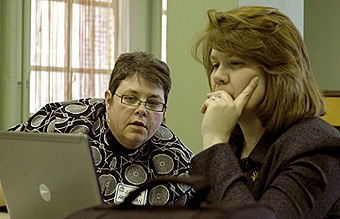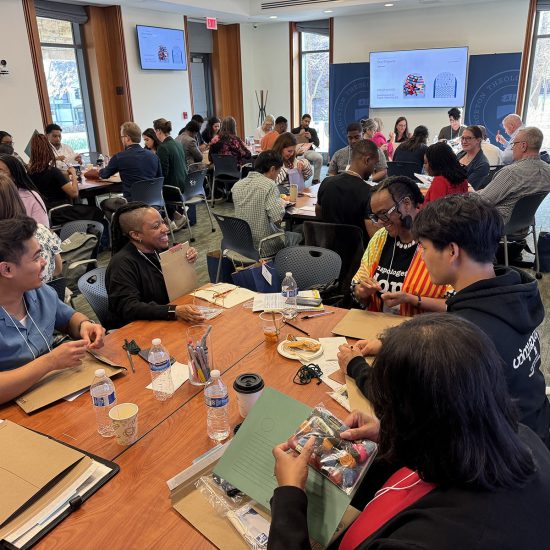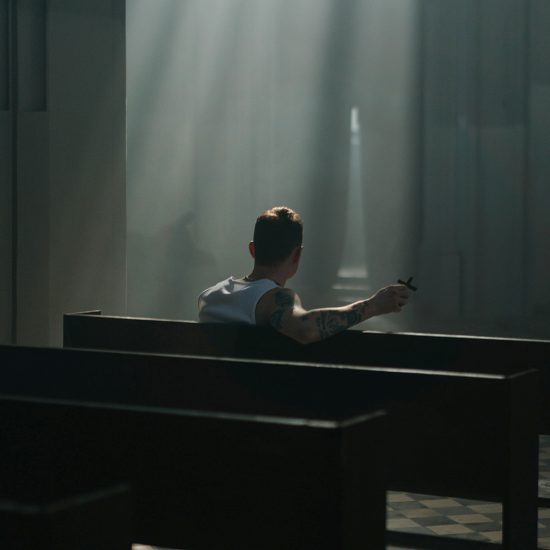While social networking sites are far from private or anonymous, the public nature hasn’t prevented individuals from boldly posting information or photographs they likely wouldn’t share with such a diverse crowd in “real” life, pastors note.

Laura Hoffman (left), pictured here with Robin Sandbothe, uses social networking in her ministry at Third Baptist Church, St. Louis.
|
Daniel Johnson, associate pastor for students at Kirkwood Baptist Church in St. Louis, describes an individual’s page on a networking site as “free” or “safe” space.
“It’s their (student’s) way of outletting things,” he said. “It causes more drama, but it’s their world.”
But that doesn’t mean all content is OK or that it won’t create issues.
“The problem is, when something is posted on the Web, you can’t take it back. It’s not private,” he added.
Some of this content can cause a dilemma for ministers. Knowing when a post should be dismissed as a new medium to vent emotions and when something is a behavior that warrants discussion can be tricky.
“Sometimes I learn things that thrill me, and other times I read things that raise concerns which lead to conversations that might not happen otherwise,” said Laura Hoffman, minister of children and youth at Third Baptist Church in St. Louis. “Once it is posted, I feel I’m free to discuss either in a message or face to face.”
Jay Abernathy, pastor of First Baptist Church in Palestine, Texas, emphasizes the ability to see more of the activity of people who “friend” clergy on sites like Facebook is a positive thing.
“Not everyone who joins our FBC Palestine group is necessarily a member of our church, so we don’t expect all of them to act like mature believers,” he said.
When a nonmember posts something inappropriate, he takes it as an opportunity to start a conversation with the individual and find out how he can pray for them.
“For those who are professing believers, we have a way to 'discipline' in a way that isn’t judgmental,” he said. This method involves prayer and consideration of those involved.
“I believe I’ve had more relevant conversations about underage drinking, inappropriate language and immoral behavior because of the information found on Facebook,” he said.
The freedom that seems to stem from the barrier of the screen isn’t all inappropriate, though. It allows some otherwise shy or quiet individuals the opportunity to share more.
“I have also found it interesting that some of my kids will pop on and chat for a moment — kids who might not say much in person, but seem to want to be connected in some way,” Hoffman said.
Tyler Tankersley, director of youth and young adults at First Baptist Church in Cape Girardeau, recently received a message from a person expressing a struggle with doubt concerning the Bible.
“I know this person very well, and I know that they would probably never have actually talked to me about that face-to-face. But with Facebook, they felt perfectly fine spilling their guts and baring their soul,” he said.
The flow of information is amazing, said Charlie Brown, pastor of The Crossing Baptist Church in Mesquite, Texas. He is able to keep a pulse on his church members due to the transparency of their posts. Many times, he said, he’s watched theological discussions take place on friends’ pages.
All emphasized that they never “dig” on a page to police content — what Johnson’s youth refer to as “stalkbooking.” Instead, they respond to what they see on news feed pages, which contain snapshots of what friends are doing on Facebook.
“The danger of social media is not so much in sharing personal information — though that’s an important consideration,” said Cheryl Smith, a social media consultant in Lynchburg, Va.
“The real danger is to relationships. What happens when a husband or a wife become involved in unhealthy conversations with other people online?… The positives far outweigh the negatives. I’ve actually had opportunities to pray over an issue with someone during a Facebook chat.”
Johnson agrees. When he sees status updates that may cross the border of appropriate content, he takes the opportunity to remind the poster — and any others who may read their page — to be thoughtful about what they share.
Jennifer Harris is the news writer for Word&Way.






